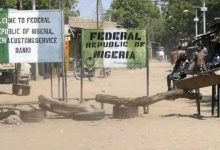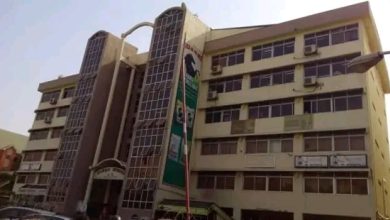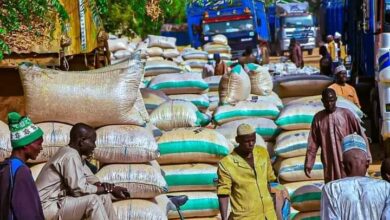Students in Katsina Raise Concerns over Governor Radda’s Decision to Increase Tuition Fees
A Controversial Decision: The Implications of Tuition Fee Increases in Katsina State

Students in Katsina Raise Concerns over Governor Radda’s Decision to Increase Tuition Fees
Introduction
In Katsina State, the educational landscape is once again under scrutiny as students voice their concerns regarding the recent decision by Governor Dr. Dikko Umar Radda to significantly increase tuition fees at various higher education institutions. This move has sparked widespread protests and debates, reflecting the broader issue of access to quality education in Nigeria.

A Controversial Decision
The Katsina State government’s decision to raise tuition fees has generated controversy, with students and their families expressing deep concern about the potential consequences of such a policy change. While the government maintains that these adjustments are necessary to improve the financial sustainability of higher education institutions, the impact on students cannot be ignored.
Abdulrahman Ashura, a prominent student union leader in Katsina, expressed the concerns of many students, highlighting that this decision may conflict with the Nigerian constitution. He cited sections 173(3) and 210(3) of the 1999 Constitution, which suggest that any adjustment to tuition fees should occur only after a five-year interval or upon completion of a student’s program.
Protests and Opposition
In response to the announcement, student unions and associations have organized protests and rallies, demanding a reconsideration of the tuition fee hike. They argue that the sudden and substantial increase in tuition fees places an unfair burden on students and their families. Many students rely on financial assistance and scholarships to access higher education, and such changes threaten to disrupt their academic journeys.
The Importance of Accessible Education
The issue of tuition fees goes beyond Katsina State and is emblematic of a broader challenge in Nigeria – ensuring accessible and affordable education for all. While quality education is a fundamental right, rising tuition fees can deter many from pursuing higher education. Access to education should not be limited by financial constraints.
The Significance of Scholarships
One solution to address the concern of rising tuition fees is to expand scholarship programs. Scholarships provide financial assistance to students who may otherwise be unable to afford higher education. By offering scholarships based on merit and financial need, governments and institutions can make education accessible to a more diverse range of students.

A Controversial Decision: The Implications of Tuition Fee Increases in Katsina State
The realm of education has always been a hotbed for discussions and debates, and Katsina State in Nigeria is currently at the center of a controversial decision that has sparked widespread discussions and concerns. The decision to significantly increase tuition fees at higher education institutions in the state is drawing both support and opposition. In this blog post, we delve into the implications of this contentious move and its potential impact on students and the educational landscape in Katsina State.
The Tuition Fee Hike
The decision to raise tuition fees in Katsina State has ignited a firestorm of opinions and protests. Supporters argue that the increase is a necessary step to improve the financial sustainability of higher education institutions in the state. However, opponents, particularly students and their families, have expressed deep concern about the effects of this policy change.
The Student Perspective
Many students in Katsina State rely on financial assistance, scholarships, and personal savings to access higher education. The sudden and substantial increase in tuition fees has sent shockwaves through their academic lives. Student leaders and unions have emerged as vocal critics, expressing their concerns about the economic burden this decision places on students and their families.
Constitutional Questions
One crucial aspect of this controversy is the interpretation of the Nigerian constitution. Student union leader Abdulrahman Ashura cited sections 173(3) and 210(3) of the 1999 Constitution, which suggest that any adjustment to tuition fees should occur only after a five-year interval or upon completion of a student’s program. This legal perspective adds another layer of complexity to the debate.
Protests and Opposition
In response to the tuition fee increase, student unions and associations have organized protests and rallies, calling for a reconsideration of this policy change. They argue that such decisions should be made with the students’ best interests in mind and consider the financial challenges many already face. The protests highlight the importance of affordable education in Nigeria and the potential long-term consequences of making higher education less accessible.
Accessible Education for All
The broader context of this controversy is the challenge of ensuring accessible and affordable education for all in Nigeria. Education is a fundamental right, and tuition fee hikes can create barriers for many students who aspire to pursue higher education. Balancing the financial sustainability of institutions with the need to make education accessible is a complex task.
The Role of Scholarships
One possible solution to address concerns about rising tuition fees is the expansion of scholarship programs. Scholarships can offer financial assistance to students who may not have the means to afford higher education. By providing scholarships based on merit and financial need, the government and educational institutions can open doors for a wider range of students.

Protests and Opposition: The Power of Collective Voice
Protests and opposition have been instrumental throughout history in driving change and drawing attention to pressing issues. The recent protests in Katsina State, Nigeria, against the significant increase in tuition fees at higher education institutions, exemplify the power of collective voices coming together to advocate for justice, fairness, and equitable access to education. In this blog post, we’ll explore the significance of protests and opposition in addressing critical societal matters.
The Katsina Tuition Fee Protests
The decision by the government of Katsina State to increase tuition fees at higher education institutions has been met with strong opposition from students and their families. The sudden and substantial hike in fees places an added financial burden on students who often rely on financial assistance, scholarships, or personal savings to pursue their academic dreams.
The student unions and associations have been at the forefront of the protests, rallying students and advocating for their right to affordable and accessible education. These protests have become a platform for students to voice their concerns, articulate their demands, and raise awareness about the potential long-term consequences of this policy change.
The Power of Collective Action
Protests and opposition are a testament to the power of collective action. When individuals come together to address common concerns and stand up for their rights, they can be a force for positive change. In Katsina State, these protests have garnered attention, not just locally but nationally, and are forcing policymakers to reevaluate their decisions.
The Impact on Policy
Protests and opposition can have a direct impact on policy decisions. In the case of Katsina, the government is now facing increased pressure to reconsider the tuition fee increases. The collective voice of the protesters has triggered discussions and debates about the implications of the decision and its compatibility with the Nigerian constitution.
Promoting Dialogue and Accountability
Protests and opposition are not just about demanding change; they also play a role in promoting dialogue and accountability. They provide an opportunity for students, policymakers, and other stakeholders to engage in constructive discussions about the challenges in the education system, the financial sustainability of higher education institutions, and the need to ensure accessible education for all.
Challenges and Opportunities
While protests and opposition can be powerful catalysts for change, they also come with challenges. Balancing the demands of students with the financial needs of educational institutions is a complex task. However, these challenges also present opportunities for policymakers to find innovative solutions that prioritize both financial viability and equitable access to quality education.
Conclusion
The debate surrounding the tuition fee increase in Katsina State highlights the ongoing struggle to balance the financial sustainability of higher education institutions with the need to make education accessible to all. It is essential for governments and educational institutions to consider the long-term impact of such policies and explore alternative solutions that prioritize both financial viability and equitable access to quality education. The voices of students in Katsina and across Nigeria underscore the importance of these discussions and the broader mission to ensure that education remains a fundamental right for all.








